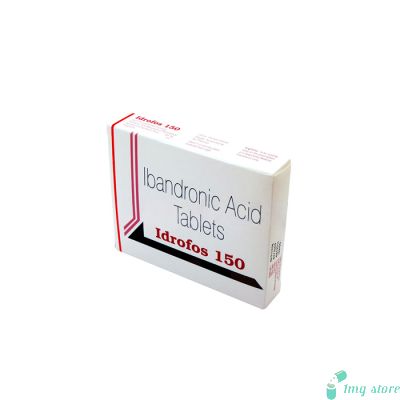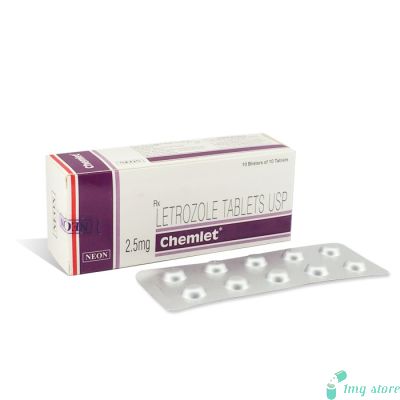Bandrone Tablet (Ibandronic Acid)
Ibandronic Acid Tablet, commonly sold under brand names such as Bandrone and Boniva, is a pharmaceutical medication primarily prescribed to treat osteoporosis.
Introduction of Bandrone Tablet (Ibandronic Acid)
Ibandronic Acid Tablet, commonly sold under brand names such as Bandrone and Boniva, is a pharmaceutical medication primarily prescribed to treat osteoporosis. This comprehensive medication guide aims to provide detailed information on Ibandronic Acid Tablets, including their dosage, uses, potential side effects, precautions, and drug interactions.
Bandrone Tablet (Ibandronic Acid) Dosage Information
Ibandronic Acid Tablets are available in various strengths, typically ranging from 2.5 mg to 150 mg. The appropriate dosage depends on the specific condition being treated and the prescribing physician's recommendations. Here are the standard dosage guidelines:
Osteoporosis Treatment: The typical starting dosage for the treatment of osteoporosis in postmenopausal women is 150 mg once a month, administered orally. It is essential to follow the prescribed schedule diligently.
Missed Dose: If a dose is missed, patients should take the tablet as soon as they remember. However, if it is close to the next scheduled dose, it is advisable to skip the missed dose and resume the regular dosing schedule. Doubling the dose to make up for a missed one is not recommended.
Overdose: Exceeding the prescribed dose of Ibandronic Acid Tablets can lead to adverse effects. In case of accidental overdose, seek immediate medical attention. Symptoms of overdose may include nausea, vomiting, and gastrointestinal discomfort.
Dosage Adjustment: Patients with impaired renal function may require dosage adjustments. It is crucial to consult a healthcare professional for personalized dosing recommendations in such cases.
Pediatric Dosage: Ibandronic Acid Tablets are not typically prescribed to children, as their safety and effectiveness in this population have not been established.
Ibandronic Acid Tablet Manufacturer: Natco Pharma Ltd
Ibandronic Acid Tablet for Osteoporosis
Osteoporosis is a prevalent condition characterized by the weakening of bones, leading to an increased risk of fractures. Ibandronic Acid Tablets are a valuable therapeutic option for individuals diagnosed with osteoporosis, especially Postmenopausal Osteoporosis Women and those at high risk of fracture. The medication works by slowing down bone resorption, thereby increasing bone density and reducing the likelihood of fractures. It is crucial to follow the prescribed treatment plan and lifestyle modifications recommended by your healthcare provider for optimal results.
Ibandronic Acid Tablet Prescription
The prescription of Ibandronic Acid Tablets is typically initiated by a qualified healthcare provider, such as a primary care physician or a specialist in bone health.
If you're exploring alternatives to Bandrone Tablet, which contains the active ingredient Ibandronic Acid, you can discover a range of options conveniently available at 1mgstore.com. Some common alternatives to Ibandronic Acid include Alendronate, Risedronate, and Zoledronic Acid. These medications belong to the class of bisphosphonates and are often prescribed for the treatment of osteoporosis and other bone-related conditions.
Before starting treatment with Bandrone Tablet (Ibandronic Acid), it is crucial to consider the following precautions:
- Allergies: Inform your healthcare provider of any known allergies, especially if you are allergic to Ibandronic Acid/Boniva or any other bisphosphonates.
- Kidney Function: Individuals with impaired kidney function may require dosage adjustments or alternative treatments. Your healthcare provider will assess your renal function before prescribing Ibandronic Acid.
- Calcium and Vitamin D: Ensure an adequate intake of calcium and vitamin D, as these are essential for the effectiveness of Ibandronic Acid in improving bone health.
- Dental Health: Maintain good oral hygiene and inform your dentist about your use of Ibandronic Acid, as it has been associated with rare cases of jaw problems.
- Pregnancy and Lactation: Ibandronic Acid is not recommended during pregnancy or breastfeeding. Discuss suitable contraception methods with your healthcare provider if applicable.
Ibandronic Acid Tablets/Boniva have various therapeutic applications, with the primary use being the treatment of osteoporosis.
- Osteoporosis Treatment: In Women's Care, Ibandronic Acid is widely prescribed to postmenopausal women and men at risk of osteoporosis to increase bone density and reduce the risk of fractures.
- Prevention of Fractures: In addition to treating osteoporosis, Ibandronic Acid Tablets/Boniva can help prevent fractures in individuals with a history of fragility fractures.
- Glucocorticoid-Induced Osteoporosis: Ibandronic Acid may also be prescribed to individuals undergoing long-term glucocorticoid therapy to mitigate the risk of steroid-induced osteoporosis.
- Paget's Disease of Bone: In some cases, Ibandronic Acid may be recommended for the management of Paget's disease, a condition characterized by abnormal bone remodeling.
- Off-Label Uses: There may be instances where healthcare providers prescribe Ibandronic Acid Tablets for conditions not listed here. Always follow your healthcare provider's guidance regarding medication use.
Crucial Side Effects to Be Observed When Using Bandrone Tablet (Ibandronic Acid)
As with any medication, Ibandronic Acid Tablets can potentially cause side effects. It is essential to be aware of these potential adverse reactions:
- Gastrointestinal Symptoms: Common side effects include nausea, abdominal pain, indigestion, and diarrhea. These symptoms are usually mild and temporary.
- Musculoskeletal Pain: Some individuals may experience joint or muscle pain while taking Ibandronic Acid Tablets.
- Headache: Headaches are reported in a small percentage of users.
- Hypersensitivity Reactions: Rarely, severe allergic reactions, such as hives, swelling of the face, lips, tongue, or throat, and difficulty breathing, may occur. Seek immediate medical attention if these symptoms occur.
- Rare Side Effects: Although rare, serious side effects like osteonecrosis of the jaw and atypical fractures of the thigh bone have been reported. These should be promptly reported to a healthcare professional.
Answers to Common Inquiries About Bandrone Tablet (Ibandronic Acid)
1. FAQ: Can I Take Ibandronic Acid Tablets with Other Osteoporosis Medications?
Answer: Your healthcare provider will consider potential drug interactions when prescribing Ibandronic Acid Tablets. It's essential to inform them of all medications you're taking to ensure safe and effective osteoporosis management.
2. FAQ: Is Ibandronic Acid/Boniva Safe for Older Adults?
Answer: Yes, Ibandronic Acid can be prescribed for older adults with osteoporosis. However, individualized dosing and monitoring are crucial to account for age-related factors and potential comorbidities.
3. FAQ: Can I Drink Alcohol While Taking Ibandronic Acid Tablets?
Answer: Moderate alcohol consumption is generally acceptable with Ibandronic Acid. However, excessive alcohol intake can increase the risk of gastrointestinal side effects. It's best to consult your healthcare provider for personalized guidance.
4. FAQ: How Long Should I Take Ibandronic Acid for Osteoporosis Treatment?
Answer: The duration of Ibandronic Acid treatment varies based on your individual needs and response to therapy. Your healthcare provider will provide guidance on the optimal treatment duration, which may include periodic reevaluations.
5. FAQ: Can I Take Calcium Supplements While Using Ibandronic Acid Tablets?
Answer: Yes, calcium supplements are often recommended alongside Ibandronic Acid to support bone health. However, it's important to follow your healthcare provider's instructions and avoid excessive calcium intake, which can affect medication absorption.
Here are five important points regarding drug interactions with Bandrone Tablet (Ibandronic Acid):
Ibandronic Acid Tablets may interact with other medications or substances, potentially affecting their efficacy or safety.
- Calcium Supplements: Taking calcium supplements alongside Ibandronic Acid should be done under medical supervision, as excessive calcium intake can reduce the medication's effectiveness.
- Antacids: Avoid taking antacids containing aluminum, calcium, or magnesium within two hours of Ibandronic Acid administration, as they can interfere with absorption.
- Other Medications: Inform your healthcare provider of all prescription and over-the-counter medications, including vitamins and herbal supplements, as some may interact with Ibandronic Acid.
- Aspirin and Non-Steroidal Anti-Inflammatory Drugs (NSAIDs): These medications, when taken in excess, may increase the risk of gastrointestinal irritation and should be used cautiously alongside Ibandronic Acid.
- Mineral Supplements: Be cautious when taking mineral supplements (e.g., iron) alongside Ibandronic Acid, as they can reduce its absorption. Separating the timing of these medications is advisable.
| Manufacturer | : | Natco Pharma, India |
| Equivalent Brand | : | Boniva |
| Generic Search | : | Ibandronic Acid |














